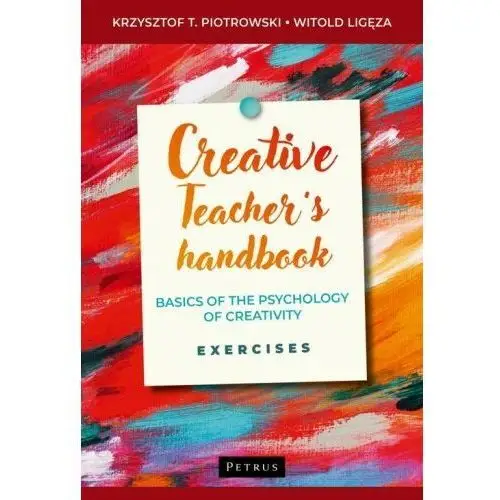The book is a popular lecture on basic issues in the of the psychology of creativity and the didactics of creativity. This is because it contains a prophetic description of almost all the important issues for these disciplines, arranged in a three-part whole - from the definitions of creativity and theoretical foundations (Parts 1 and 2), to exercises stimulating the development of creative abilities (parts 3 and 4).
The authors present in a clear manner the most important issues of the psychology of creativity: creative processes, the properties of a creative product of creativity, characteristics of creative personality and external conditions of developing creativity/creativity.
(...) What is most valuable and interesting is the description of the author's conception of the goals of education for creativity (Chapter III), contrasting with well-known taxonomies of didactics, such as B.
Bloom's. A significant part of the book is a kind of manual of techniques for developing specific creative abilities and skills (part 2-4), which is an application of theory to educational practice.
„Książka (…) jest lubianym wykładem podstawowych zagadnień z zakresu psychologii twórczości oraz dydaktyki twórczości. Zawiera bowiem propedeutyczny opis niemal wszystkich ważnych dla tych dyscyplin zagadnień, ułożonych w trzyczęściową całość – od definicji twórczości i teoretycznych podstaw (część 1i 2), po ćwiczenia stymulujące rozwój zdolności twórczych (część 3 i 4).
Autorzy (…) przedstawiają w krystaliczny sposób najważniejsze zagadnienia psychologii twórczości: procesy twórcze, atrybuty wytworu twórczego, właściwości osobowości twórczej i uwarunkowania zewnętrzne rozwijania twórczości/kreatywności.
(…) Co najmocniej cenne i niebanalne, to opis autorskiej koncepcji celów edukacji do twórczości (rozdz. III), kontrastujący ze znanymi taksonomiami dydaktyki, np. B. Blooma. Wielka część książki to swoisty podręcznik technik rozwijających określone zdolności i umiejętności twórcze (część 2-4), będąca aplikacją teorii do praktyki edukacyjnej." prof.
dr Krzysztof J. Szmidt z recenzji















